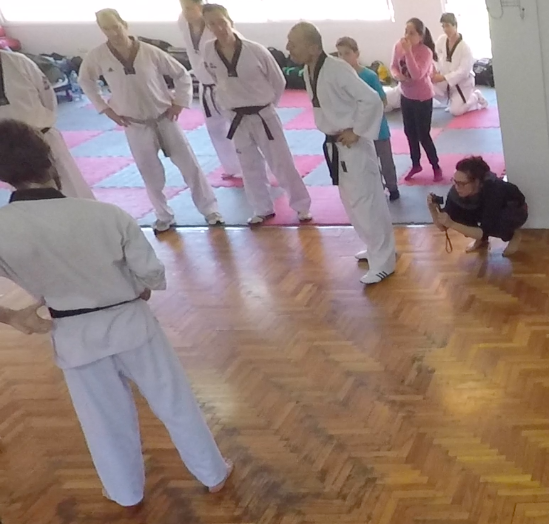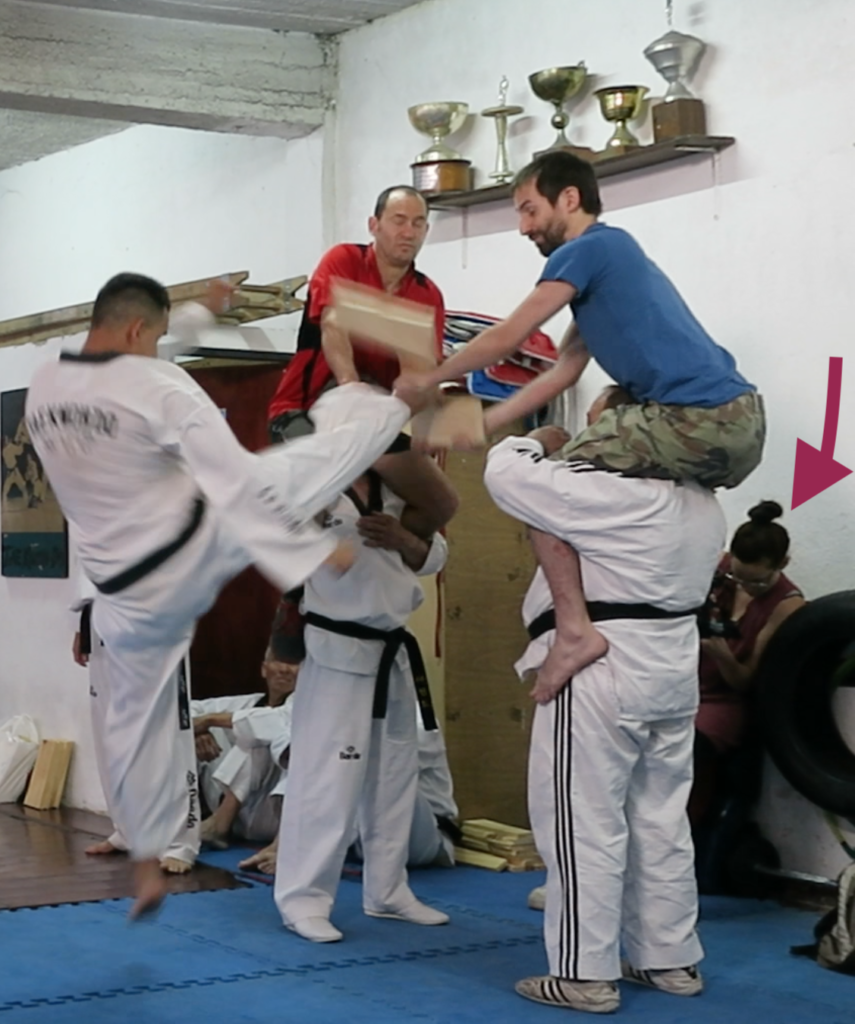
- How do you follow the movement?
- To what extent is it intrusive?
- How do you feel as a videographer?
- How would you feel being filmed?
- …
This workshop scrutinises audio-visual methods and experimental outputs that engage with the moving bodies. We will think and experience physical movement actively to then reflect our position within a construction of research. Throughout the residency, I explored connecting and synching with peers through movement on Zoom and how to deploy movement to facilitate intellectual labour and thinking. Hence, the practical workshop aims to discuss bodily movement beyond the observed and focuses on the bodily experiences of all participants involved. How is research undertaken that aims to translate haptic knowledge and embodiment produced through the sensory-motor activity? What experimental modes of audio-visual production evoke a deeper understanding of movement and related (e)motions? What does the researcher do and experience? How do the observed participants feel when someone with a camera wiggles through the action? What can be learned from the different types of observation?
Sports, martial arts and dance serve as platforms to analyse underlying intersections of various phenomena. Visual and sensory anthropology as well as research into physical activity experiment with techniques from observation to rendering the researcher’s body to be “at once the seat, the instrument and the target” (Wacquant 2004:16). After a brief introduction, describing the underlying ideas for the workshop that stem from discourses around sports and physical activity praising its potential to help the practitioner to cope, we will examine ideas of finding pleasure in muscular activity including its complex motions and emotions that the moving body produces (Paterson 2013), and the feelings prompted by the presence of a recording camera operator while being active. The workshop shall be a safe space to express impressions and develop ideas for how to engage in future audio-visual research with care.
The goal is to develop exercises in which the participants engage actively in camera operation and/or movement. The purpose of the practical task is to establish a situation that reflects the sensory-motor experience to evoke and discuss an understanding of the (e)motional landscape of the researcher and the practitioner.
Besides the icebreaker exercise(s), I would like to elaborate a few exercises that are tailored to the needs/research interests of the group…
I estimate 2-3 hours for the workshop, to be delivered outside. If you practice any sports, martial arts or dance, I would be delighted to know about it beforehand, so I can start thinking and develop activities.
Please bring a face covering, wear comfortable and weather adequate clothing. If you have a camera, feel free to bring it along (also a smart-phone could suffice).

0 Comments